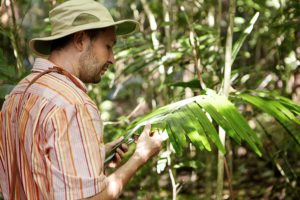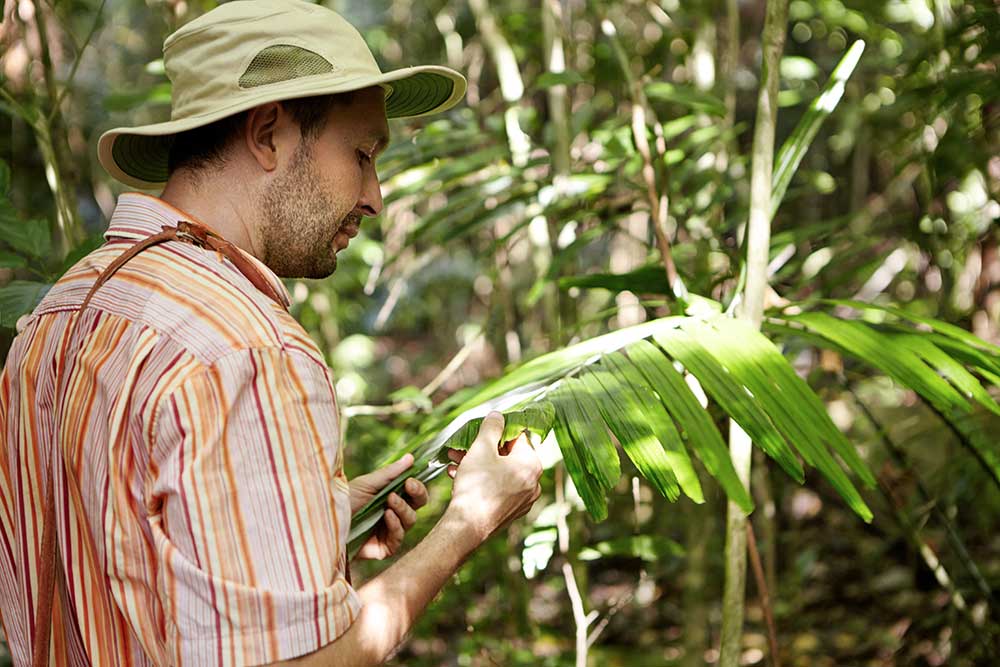Disclaimer: The information on our website is provided for general information purposes only. We make no representations or warranties of any kind, express or implied, about the completeness, accuracy, reliability, suitability or availability with respect to the website or the information contained on our website for any purpose. Any reliance on such information is therefore strictly at your own risk and we are not liable for any damages or losses arising out of or resulting from your reliance on any information contained on our website.
An environmental scientist protects human health and the environment through their study and education in natural science. Additionally, they analyze the dangers and effects an ecosystem may suffer. They also advise policymakers, clean up polluted areas, and encourage industries to reduce waste. They might even work in the field to monitor the environment or work in laboratories or offices. Watch a video to learn what an environmental scientist does:
How to Become an Environmental Scientist
An environmental scientist needs a bachelor’s degree in environmental science or a related field like geosciences, physics, biology, chemistry, or engineering. A master’s degree can also give you an edge for employment opportunities as well as taking additional courses in waste management, hydrology, and environmental policy. Some environmental scientists further their careers and earn a Ph.D. There are several programs offered by the University of Consortium of Atmospheric Research (UCAR).
Job Description of an Environmental Scientist

Environmental scientists retrieve environmental data for analyzation from water, soil, food, and other locations. They determine potential threats to the environment or human health from the data gathered. They also help reclaim previously damaged water or land by working with governments and educating the general public. Prevention of damage done to humans or the ecosystem as part of their overall goal.
These scientists prepare presentations and technical reports to deliver their findings. They also ensure that any governmental regulations that are in place to protect the public health or the environment are compliant. An environmental scientist should be analytical and have the ability to problem-solve. They should be a skilled communicator and have self discipline because working alone requires self motivation. He or she should also have interpersonal skills.
Environmental Scientist Career Video Transcript
Environmental scientists and specialists use their knowledge of the natural sciences to protect the environment and human health. They develop strategies to clean up polluted areas, advise policymakers, and work with industry to reduce waste or hazards. Environmental scientists gather and analyze data to shed light on important questions, including how to prevent or handle environmental problems… then use their findings to inform the public, private industry, government officials, and others about environmental hazards.
Day-to-day tasks can vary a lot among these specialists: Climate change analysts study the effects of changing climatic conditions on ecosystems. Environmental health specialists study how environmental factors affect community and individual human health. Environmental restoration planners determine how to clean up polluted sites and assess costs. And industrial ecologists work with industry to develop sustainable and efficient practices that limit adverse impacts on the environment.
While environmental scientists generally work full time in an office or laboratory, some head to the field to check out environmental conditions and gather samples of air, soil, water, or food. Most entry-level positions require a bachelor’s degree in a natural science or related field, but a master’s degree is often needed for advancement. Whether teaching or practicing methods to keep our air, water, and land clean and free of health risks, the work of environmental scientists hits home.
Article Citations
Bureau of Labor Statistics, U.S. Department of Labor, Occupational Outlook Handbook, Environmental Scientists and Specialists.
National Center for O*NET Development. 19-2041.00. O*NET OnLine.

